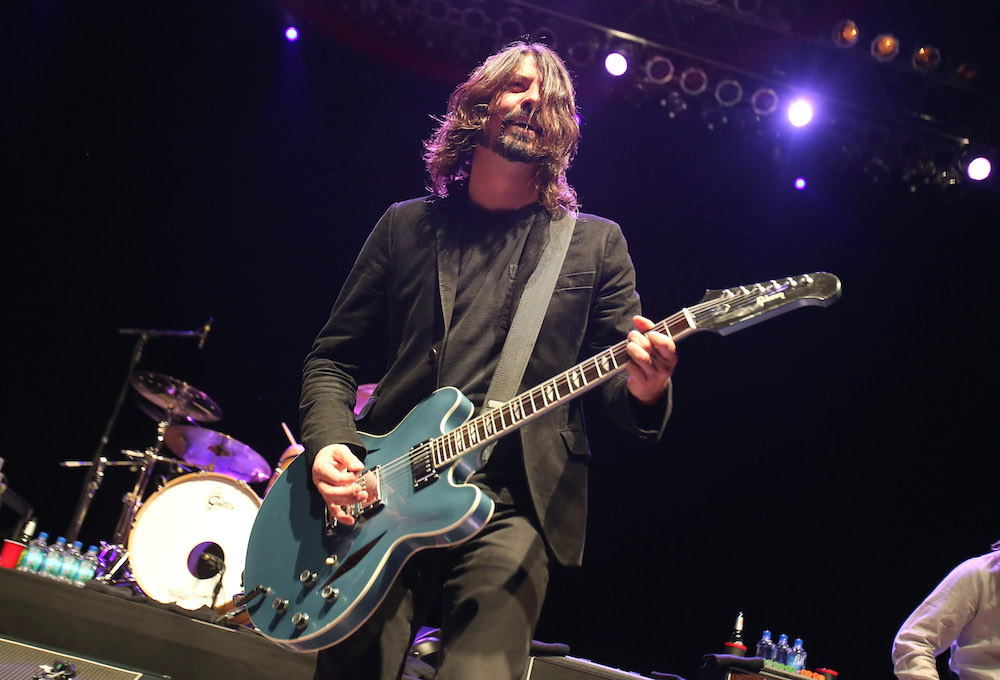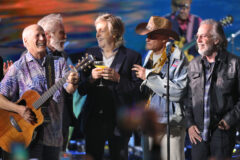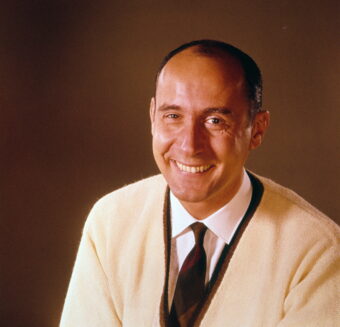When you get older, it’s nice to revisit art that once affected you deeply, and find that the work still speaks to you. (A truncated list of such things I’ve enjoyed in the last year: The Beatles; Harold and Kumar Go to White Castle; Final Fantasy VII.) A similarly important experience is how to acknowledge that you’ve moved on from a once formative piece of art without selling out your former self by disparaging what he used to like. It’s surprisingly easy to do this; just think about any time you’ve been embarrassed by something you loved when you were younger, and how quickly you can joke about what a dummy that guy used to be.
People are essentially honest to themselves when they decide they like something. They might act like assholes about it in public, and inflate or diminish their affection to prove a point to someone they want to kiss, but when they’re alone they settle down and let the work take hold. Young people are even more honest in this regard, as sophisticated notions of taste and expertise haven’t reshaped the way they engage with a piece of art; it’s why a prevailing critical sentiment in recent years has been to respect the kids, even if you do not agree with them. (The kids are alright, even when they’re not right.)
Which is to say that I once loved Nirvana, and can now admit I take no great pleasure in listening to them without disparaging the quality or importance of their music. I can recall the righteousness of the pain and angst evoked by their music, how the texture of Kurt Cobain’s sledgehammer guitar tone and Dave Grohl’s thunderstruck drums meshed with and reinforced the vividness of these feelings, how I walked around listening to “Lithium” and “All Apologies” and “Heart-Shaped Box” and thought, like thousands upon millions of teens like me, that this shit was extremely good and true. Today, I can listen to these songs and enjoy the musical textures because I still like rock music, but the emotions no longer resonate inside me. Maybe this is because notions of sophistication and taste have reshaped the way I engage with art; maybe it’s just because I’m old.
But you know what song I love unabashedly, half a lifetime later? Foo Fighters’ “Everlong.” I’m fairly convinced it’s my favorite song Dave Grohl was ever involved with; I certainly enjoy hearing it today more than I enjoy any Nirvana song, an opinion that led my coworkers to call me an idiot and a fraud. The slickness of the band’s sound in comparison with Nirvana doesn’t sound lame; the quiet-loud-quiet dynamics and bludgeoning hooks are gripping and thrilling, as they were designed to be. Mostly, though, I find myself growing more fond of Grohl’s sentiment. An acoustic performance of “Everlong” was one of the first mp3s I ever illegally downloaded; I don’t remember what I thought after hearing it, except that “Napster is cool.” So rather than reliving the feeling I felt as a pre-pubescent dweebus, with each fresh listen I’m pulled to it as an adult.
“Everlong” is about a new relationship Grohl was getting into, as his marriage was dissolving. The lyrics are about falling in love, but the power comes from the chorus, which features the song’s most nakedly emotional lyric, which appears as the guitars are at their strongest. “And I wonder,” he sings, “When I sing along with you / If everything could ever feel this way forever / If anything could ever be this good again.” It sounds like it’s about nostalgia, which is a frequently embarrassing feeling weaponized by people who refuse to grow up. Perhaps it’s enjoyed in this context by people who’re remembering what they had in a relationship at its most potent, after it’s all gone away.
But Grohl’s writing is a little more subtle than that—he’s recognizing, in real-time, that what he’s experiencing is mind-blowing in the purest sense, and that he wants to preserve it. It’s giddy and humbled—both the woman leaning out of a sunroof with her arms raised, the wind blowing joyously through her, and the man looking at her from inside the car and thinking, I’m going to remember this forever. It’s living in the moment and wanting to extend it forever, a sentiment I relate to more as I recognize that life moves at a speed almost impossible to account for, until you’re suddenly much farther away from where you used to be.
The ruthless pragmatist considers this and says: Reject the feeling; live for the moment but accept that death is real, that everything moves on, that you can meaningfully prolong an experience without defaulting to mawkish sentimentality just as easily as you can count the grains of sand as they are slipping away from your hand, which is you say you can’t, idiot. Well, sure. Our bodies decay, our friends move away, our ex-lovers get engaged, our current partners get tired with our bullshit, and on and so forth. Intellectually, it makes sense.
But the beauty of a song is how it evokes emotions that one might never come to elsewhere; how it creates a space lasting three or four or nine minutes where you can relish the feeling, rather than unsentimentally rejecting it, before moving on. It’s there in those three simple words, the root power of art to help you escape for just a little while, to free yourself from intellectual and practical concerns: “And I wonder.” It’s easy to lose this sense as life’s realities bake the frivolity out of your core. But “Everlong” is a powerful song about retaining that ability to wonder, about retaining a bulwark against cynicism. It’s there in the lyric, and in the sound, which envelops as it bludgeons, the electric jolt of the energy an insistent reminder that the wonder doesn’t just stick around, or come naturally—you have to reach out, and grasp it.
“Everlong” made our list of the Best Alternative Rock Songs of 1997. Read it here.





